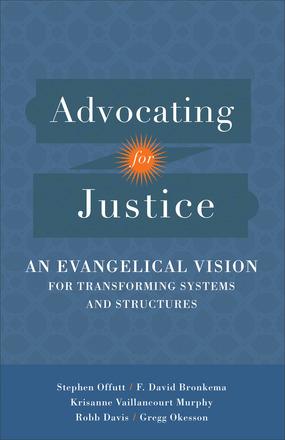The CRC’s Fight Against ‘Blood’ Diamonds

The role Christian Reformed Church missionaries played in helping to end the Civil War in Sierra Leone in 2002 is highlighted in the new book Advocating for Justice: An Evangelical Vision for Transforming Systems and Structures.
Published by Baker Academic, the book recounts how rebel fighters forced CRC missionaries Paul and Mary Kortenhoven to flee in the 1990s from their mission field of more than 20 years in Sierra Leone.
But after that, the Kortenhovens, who served with Christian Reformed World Missions, joined with others in the denomination and with the U.S. government to address political instability and stem an illegal diamond trade that was fueling the fighting in the West African country, according to the book.
“In writing Advocating for Justice, we thought it was important to share the story of the CRC’s experience in the Kuranko region of Sierra Leone because, although it was certainly devastating that CRC missionaries had to flee and that programs and projects were destroyed, it was also an incredibly hopeful story,” says Krisanne Vaillancourt Murphy, one of the authors.
The CRC’s is one of several stories highlighting a main theme of the book, which is the call for people of faith to embrace what the authors call evangelical transformational advocacy, says Vaillancourt Murphy.
In the book, the authors define evangelical transformational advocacy “as intentional acts of witness by the body of Christ that hold people and institutions accountable for creating, implementing, and sustaining just and good policies and practices geared toward the flourishing of society.”
The CRC did exactly that in Sierra Leone, says Vaillancourt Murphy, when it sought to get at the source of the fighting that forced the Kortenhovens to leave—and then to do something about it.
Frequently in cases such as this, missionaries and churches leave a mission field and wait and pray until the turmoil subsides before they return. Or in some instances they never return at all.
“Thankfully, the CRC rallied church members and missionaries to continue its partnership with the people of Sierra Leone in a different kind of way—through advocacy,” says Vaillancourt Murphy.
In an interview, Paul Kortenhoven said they didn’t want to leave because, even though the rebels destroyed buildings and programs, the faith of the people remained strong.
He also said advocating for change and justice by combining the message of Christ with efforts to better the lives of the people had been their approach ever since they started work in Sierra Leone.
“Working for justice is absolutely necessary and it is costly and can cost you your life,” he said. “But it is part of the job. It is what the gospel calls us to do,”
As the war spread in Sierra Leone, he said, it became increasingly clear that the illegal proceeds from diamonds were being used to pay for weapons -- many coming from Ukraine through Libya -- to arm insurgencies across Africa.
These diamonds, frequently referred to as “blood diamonds,” were being mined in many African countries. In Sierra Leone, said Kortenhoven, they would sometimes see helicopters fly in to drop off arms and pick up jewels.
“There were a lot of people pushing from a lot of sides trying to bring attention to this,” Kortenhoven said. “And a lot of people were coming at it from a perspective of faith.”
In the late 1990s, the Kortenhovens joined with the newly formed Office of Social Justice (OSJ) and others to advocate for changes. Kortenhoven spoke to synod and churches and other groups about the situation, says the new book.
He and his wife and OSJ also took what they had learned to Vern Ehlers, a CRC member who was then their congressional representative for West Michigan.
“By telling its experience to the local member of Congress, the CRC utilized its power and influence to help a policy maker champion the cause of international diamond certification. The illegal diamond trade was fueling the violence that forced CRC missionaries to leave,” says Vaillancourt Murphy.
By fighting for the cause in the U.S. House of Representatives, Ehlers helped convince lawmakers to join the international Kimberley Process—“an initiative jointly sponsored by industry, civil society, and government to certify diamonds,” says the book.
This process led to the 2003 Kimberley Accords, which put into place a certification program that was used to cut the flow of illegal diamonds being sold to fund wars against legitimate governments.
“The Christian Reformed Church is one of the few evangelical denominations that has a specific office on social justice. The CRC’s experience and advocacy efforts helped lead to adopting the Kimberly Accords,” says Vaillancourt Murphy.
The book mentions other CRC advocacy efforts as well, such as how World Renew helped the social advocacy group Micah Challenge USA put together Live Justly, a 10-session scriptural study guide which helps Christians live more justly and faithfully in the world.
“The body of Christ is called to advocate and to stand with those who are oppressed by unjust systems,” said Kris Van Engen, congregational justice mobilizer for the CRC and assistant editor of Live Justly.
To view a video of the authors talking about Advocating for Justice, click here. To purchase a copy of the book, visit the Bread for the World store.
Read story from the The Banner for a full account of the advocacy efforts of the Kortenhovens.


